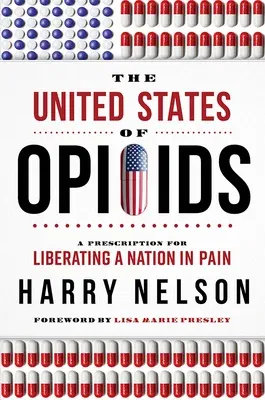Author Harry Nelson has been on the front lines of behavioral health and
medical advocacy for 2 decades. He is the leading healthcare legal
expert in the country addressing the worsening problems in how we treat
pain and addiction. His insights have earned the attention of lead
policymakers and regulators at every federal agency touching the opioid
crisis. He has been one of the few voices in the room with direct
experience of where we are going wrong. Read The United States of
Opioids to join his campaign to stop talking about and start doing
something about out-of-control overdose death rates, addiction, and
chronic pain.
The United States of Opioids explains:
-why coverage of greedy drug companies and doctors has been reductive,
missing the real story, shortchanging the American public and impeding
progress;
-the structural roots of the crisis in multiple points of health system
failure
-why healthcare industry and government efforts will never be enough to
tackle the crisis;
-how grassroots action can force a new conversation about the parallel
crisis of rising suicide rates
-why the opioid crisis, including spiraling overdose death rates, will
continue to worsen until we take on root causes, including rising rates
of anxiety, social isolation, chronic stress, and despair
-practical steps we can take to address the opioid crisis.
The United States of Opioids tells the real story of what went wrong. It
offers a roadmap out of the crisis that empowers and offers practical
resources for people, families, employers, and communities to connect,
prevent, and intervene in addiction, chronic pain and the rising death
toll. Harry's call to action has resonated and is leading to new
conversations across America, including:
-how religious communities can play a pivotal role in taking on the
opioid crisis
-how employers and employees can re-imagine workplace wellness in ways
that detoxify the American workplace and lead to healthier workforce,
with less stress and anxiety at work
-how all of us can rethink what wellness means in our own lives and
social circles to become more self-aware, more conscious of hidden shame
and judgment that fuels substance abuse, and agents of prevention and
intervention
-how parents and schools can rethink our approach to early and
elementary education to raise a generation of more resilient kids who
are less prone to the plague of distress and substance use infecting
middle schools and teens across America
-how people can share their addiction and recovery journeys to inspire
others and make a difference in the opioid crisis

